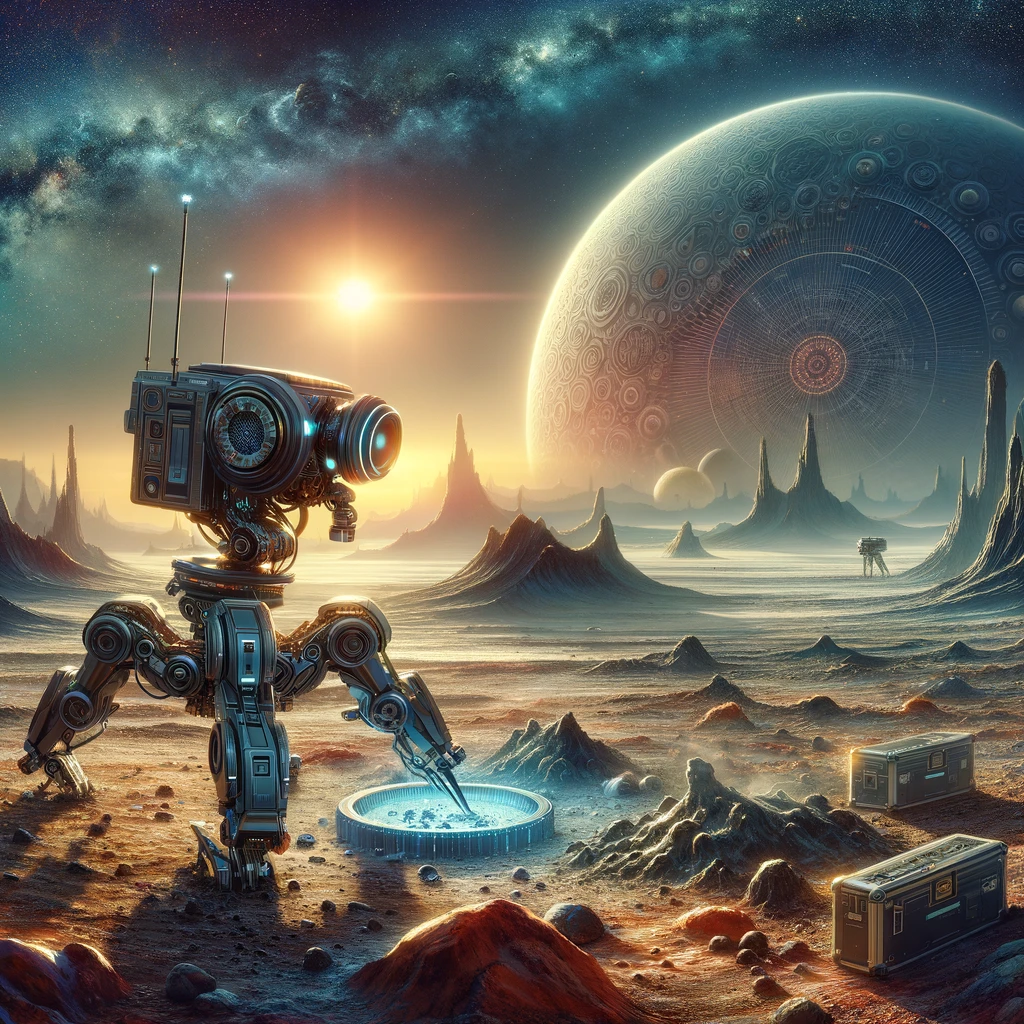Space exploration is entering a new era, thanks to the advancement of Artificial intelligence (THERE). With the promise of unlocking cosmic mysteries and expanding our understanding of the universe, the Galaxy AI emerges as a transformative force.
Browse the content

How Galaxy AI Works in Astronomical Research
Astronomical research generates petabytes of data, encompassing observations of galaxies, stars, planets, and other celestial bodies. Analyzing this mountain of information is a challenging task for scientists. Here, artificial intelligence plays a crucial role, employing machine learning algorithms to identify patterns, classify cosmic objects, and predict astronomical events with previously unattainable accuracy.
Galaxy AI algorithms are revolutionizing the way astronomers address fundamental questions about the formation and evolution of galaxies. For example, AI models can simulate galactic dynamics, offering insights into how galaxies form, merge, and evolve over cosmic time.
Galaxy AI in Space Navigation and Exploration
Navigation and space exploration are areas where the Galaxy shows great promise.
Space vehicles equipped with AI systems can make critical decisions in real time, adapting to unforeseen conditions during interplanetary missions. This is vital to the success of missions where communication with Earth may experience significant delays, such as trips to Mars or beyond.
Artificial intelligence is also transforming the design of space missions, enabling the design of more autonomous rovers and probes.
These intelligent machines can perform complex tasks such as choosing landing sites, independently navigating alien terrain, and carrying out scientific experiments without direct human intervention.
Advances in Space Telescopes
The new generation of space telescopes, powered by Galaxy AI, promises to revolutionize our understanding of the universe.
These telescopes, capable of capturing high-resolution images of distant parts of the cosmos, generate an immense amount of data. Galaxy AI, with its ability to process and analyze large volumes of information, is essential for filtering signals from noise, identifying objects of interest and even discovering new astronomical phenomena.
For example, the use of artificial intelligence in analyzing data from the James Webb Space Telescope (JWST) could significantly accelerate the discovery of potentially habitable exoplanets.
Additionally, AI systems are being trained to identify signs of cosmic changes in real time, allowing astronomers to act quickly to observe rare events such as supernova explosions or galaxy collisions.
Galaxy AI and Understanding Dark Matter
One of the greatest mysteries in cosmology is the nature of dark matter, which makes up approximately 85% of the total mass of the universe.
Despite its indirect presence being inferred by gravitational effects, dark matter remains invisible to traditional instruments. Here, artificial intelligence offers new hope in the quest to understand this cosmic enigma.
Machine learning algorithms are being developed to analyze galaxy distribution patterns and gravitational lensing, seeking clues about the nature and distribution of dark matter, and can detect subtleties in the data that are imperceptible to conventional analyses, potentially leading to significant advances in our understanding. of the structure and evolution of the universe.
Planetary Protection
As we expand our presence in space, protecting terrestrial ecosystems and preventing biological contamination from other worlds become increasing concerns.
Galaxy AI has a crucial role to play in planetary protection through the development of monitoring and diagnostic systems for space missions.
AI systems can analyze soil and atmosphere samples for contaminants or terrestrial microbes, ensuring the scientific integrity of missions searching for extraterrestrial life.
Furthermore, Galaxy AI can be used to monitor the health of astronauts on long-term missions, identifying early signs of illness or physiological stress.
Challenges and Solutions in Implementing Galaxy AI
Despite its potential, implementing Galaxy AI faces significant challenges. The accuracy of AI models depends on the quality and quantity of training data.
In the spatial context, where data can be limited or highly specific, developing robust and reliable algorithms is a complex task.
Furthermore, space exploration requires AI systems to be extremely resilient to failures. This implies the need for models capable of operating in extreme conditions, such as temperature variations, space radiation and other adversities found in space.
To overcome these challenges, researchers are developing advanced machine learning techniques, such as reinforcement learning and generative neural networks, to create more adaptable and resilient Galaxy AI models.
International collaboration and data sharing are also essential to improving the accuracy and robustness of AI systems.
The Future of Galaxy AI in Space Exploration
As AI technology continues to advance, Galaxy AI's potential in space exploration expands.
In the not-too-distant future, we could see fully autonomous missions exploring the far reaches of the solar system and beyond. Galaxy AI could play a key role in the search for extraterrestrial life by analyzing exoplanet data and identifying signs of biosignatures.
Additionally, Galaxy AI has the potential to democratize access to space, enabling more countries and organizations to participate in space missions. With AI systems reducing costs and increasing mission efficiency, space exploration could become more accessible.
Conclusion
Galaxy AI is at the forefront of the space revolution, offering powerful tools to unlock the mysteries of the universe. From analyzing astronomical data to driving autonomous interplanetary missions, Galaxy AI is defining the future of space exploration.
As we face the challenges and seize the opportunities that this new era brings, Galaxy AI promises to take our cosmic adventure to unprecedented heights.







